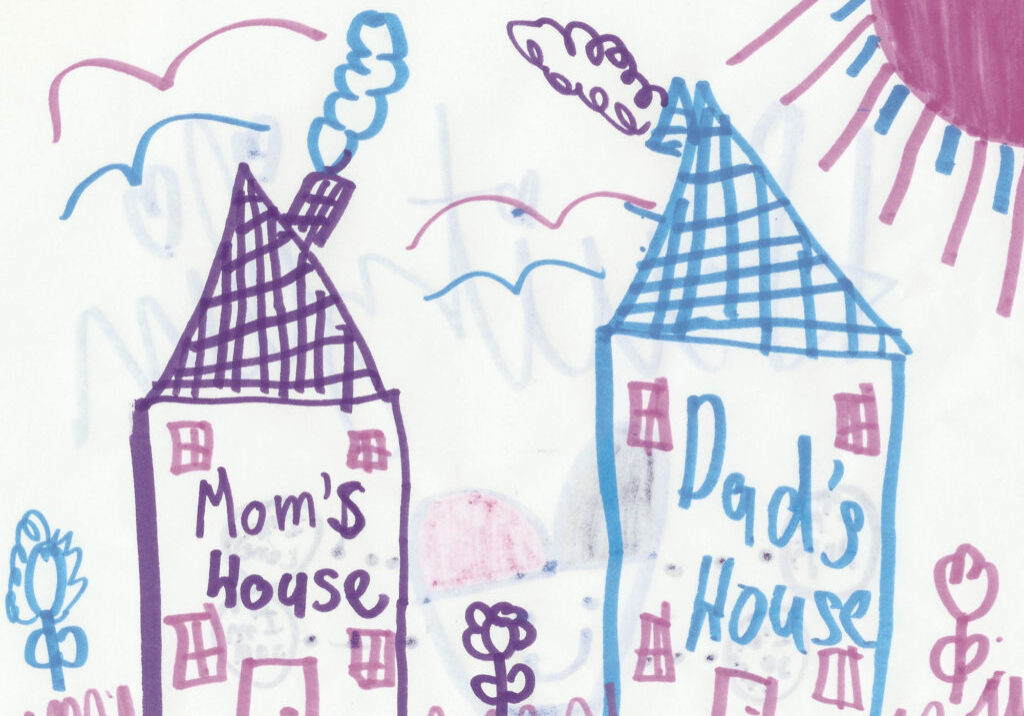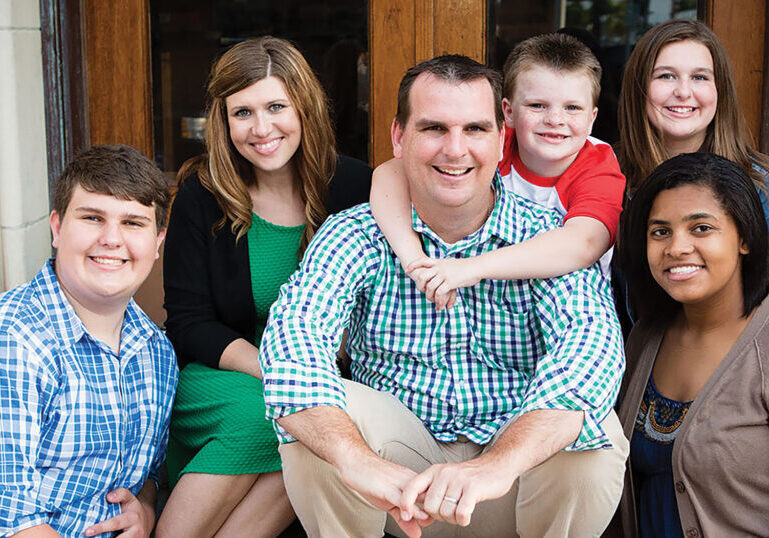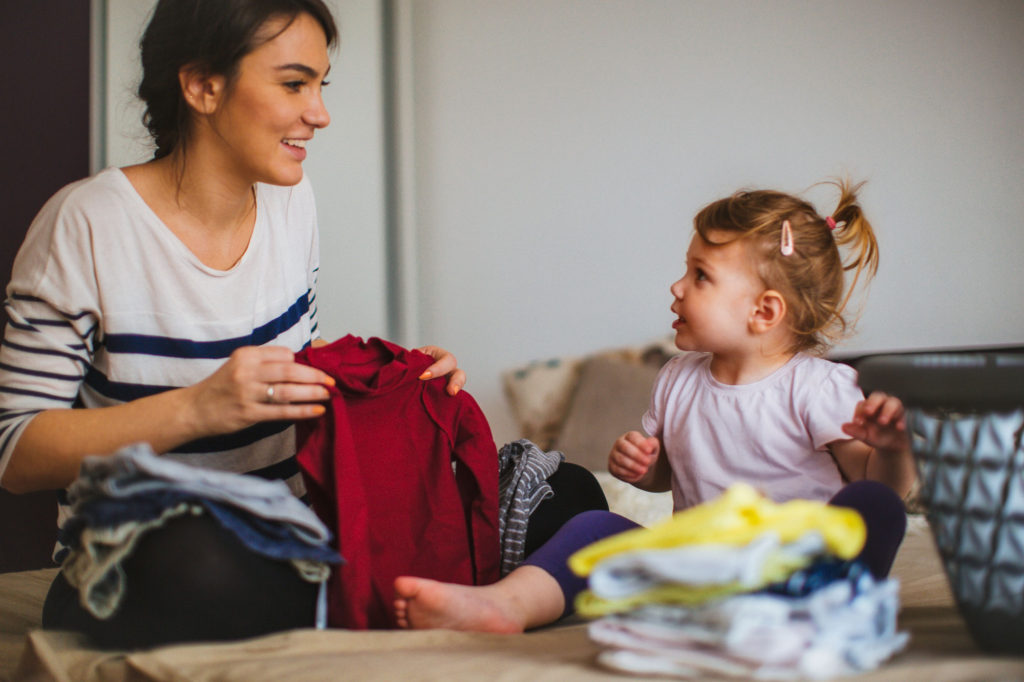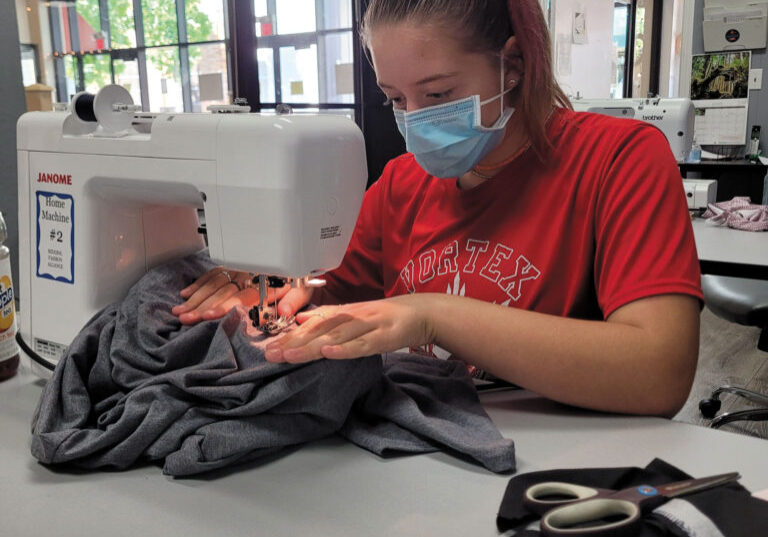As a mom of kids ranging from 2 to 12, I realize how quickly time flies. I love watching them grow, try new things, and discover their passions. As a parent, it can be hard to let them struggle through, or even fail at, experiences outside their comfort zone. However, those experiences develop confidence and independence which is valuable all through life. Here are some ideas to help kids naturally develop the independence needed to be confident and responsible adults.
For every age, it’s important to have clear household rules so your child has the opportunity to be independent. As our children grow, so must their responsibilities. Giving your child tools throughout their childhood will help them grow into a confident and independent adult.
For toddlers and preschoolers
Let them help with chores
Toddlers and preschoolers love to follow their parents around the house; so why not have them help with the chores? They can help put clothes in the dryer, match socks, sweep the floor, or assist in any other task. They may not be able to do chores independently or have household responsibilities yet, but taking the extra time now lays the groundwork for the future.
Allow them to try things on their own
During the preschool years, kids typically show an interest in trying self-care tasks themselves. It may be easier (and faster) to tie your child’s shoes, zip up their coat, make their lunch and buckle their seatbelt, but allowing your child to try these things on their own helps them become more independent. Consider starting the preparation for your day 15 minutes earlier to allow extra time for this. Instead of just completing the task for them, take time to teach them how to do it so they can try again tomorrow.
Help develop problem solving skills
Toddlers and preschoolers will often get frustrated when things don’t go their way and it may result in a temper tantrum. While this is age appropriate, parents can begin to help their children develop problem solving skills by calmly suggesting solutions. Have your child come up with ideas to solve the problem and when possible help them work through it on their own.
For elementary age kids
Step up the chores
I will assign my child a chore like washing windows, vacuuming, or putting away dishes and because he’s helped me with these tasks for years, he no longer needs my assistance. If your child is reluctant to do chores, make a list of things that need to be done and have her choose a few things. After chores are done, allow your child free time for electronics, outside play, or something else she’s been looking forward to. Chores teach kids to be independent and responsible.
More opportunities for independence
This may look different depending on your child’s age and maturity but some ideas may be ordering and paying for their food at a restaurant, riding their bike home from school, packing their own lunch, or trying a new extracurricular activity. Each opportunity, even a challenging one, helps your child become self-sufficient and develop more independence.
Solving the bigger problems
Elementary school kids will begin to face bigger problems that may include challenging friendships, struggles with schoolwork, or even bullying. Foster good communication with your child and help them come up with solutions they are comfortable with. Cheer them on when they are able to work through obstacles. Rather than criticizing for imperfect results, praise your child for a good effort.
For teens
More household responsibilities
Tweens and teens should be given even more household responsibilities as they are nearing adulthood. Cooking, yard work, babysitting, laundry, car care and even a part time job fall into this category. Becoming familiar and comfortable with taking on responsibility while living at home will make it easier for your child to transition to living on their own.
Balance independence and safety
There is a fine line between giving your child independence and keeping them safe in the teen years. As kids start to drive, spend more time with friends, and work outside the home parents have less control over their choices. Continue working on open communication and trust with your teen so that as they venture into the world, you both feel comfortable with the change.
Manage responsibilities and consequences
One of the hardest things kids have to experience is the consequence for a poor choice. A parent’s first reaction may be to step in and “save” their child but, in the long run, this does not teach them anything. As adults we have to manage our responsibilities and teens must also learn these lessons. If forgotten homework is repeatedly an issue, suggest packing up the night before. Sit down with your child to help come up with solutions to problems. Also encourage them to do this without you and present their solution to you.
Posted in: Youth & Teen
Comment Policy: All viewpoints are welcome, but comments should remain relevant. Personal attacks, profanity, and aggressive behavior are not allowed. No spam, advertising, or promoting of products/services. Please, only use your real name and limit the amount of links submitted in your comment.
You Might Also Like...

How To Create Precious One-On-One Time With Your Kids
Growing up as an only child, I was not spoiled with THINGS, but instead, my parents gave me the gift of one-on-one time. I treasured that time and am learning […]

Helping Kids Through Divorce
Parental divorce or separation can be the most heartbreaking and difficult time a family may face. The conflict family separation may bring often takes a toll on children’s behavior, education, […]

Helping Your Teens to Manage Money
Growing up, my first real job was waitressing at the lunch counter of our local Woolworth’s store in downtown Redding. At the age of 16, I was making an awesome […]

Kids Waiting to Be Adopted Don’t Need Superheroes
The first time my parents decided to adopt was on a beach. A friend was telling them about a little boy she works with that no one wants. Without missing […]




